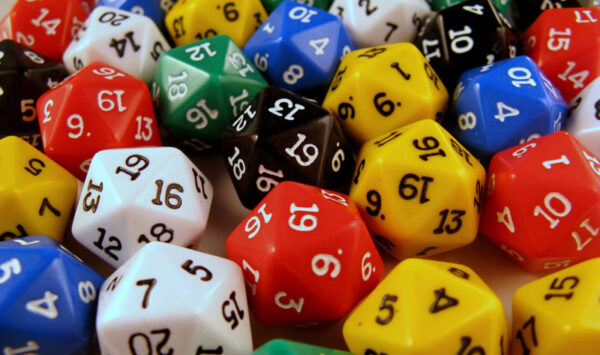The eventual winner of this year’s Eurovision Song Contest will not have come as a complete surprise to many. Israel’s Netta had been a favourite from the first release of “TOY”. Apart from a brief drift in Eurovision week, it was her contest to lose.
However, what lies beneath is a very different story. 2018 was a year of firsts, contrasts and surprises that made it one of the most exciting and contentious in recent years.
Juries and televoters – and the chasm in between
-
Jury winner Austria only managed a mid-table 13th with viewers
-
Denmark bombed with jurors, but aced it in televoting numbers, securing a lower top ten placing
-
Sweden wowed the expert voters, but crashed in the televote, and was extremely lucky only to drop from silver to seventh
-
Italy looked to be doomed to the doldrums, until a spectacular third place in the phone vote gifted them their top five position.
- Ukraine jumped from last place to 17th, thanks to a seventh place amongst viewers
-
Australia achieved a respectable 12th with juries but dead last with home voters (similar to their 2017 result, where a higher jury vote gave them a much higher overall placing)
The pattern is mirrored in the semifinals. Malta, for example, impressed jurors much more than viewers, who placed her last in the second qualification round. Denmark was equally loved by televoting fans in the semifinal and final, but would have been sent home early by the juries.
This is nothing new, of course; Poland’s Michał Szpak was lifted from next-to-last into the top ten in 2016 when the televote was added to the jury score. But disagreement between the voting sets was one feature of 2018 that made for a particularly exciting final score sequence.
Hard to call
Predicting the win, things fared slightly better – but not much. By the time the final had started,
bookies had the top two correct – but in the wrong order. Beyond that, the favourites went a little haywire. The rest of the top five (Ireland, France and Lithuania) failed even to break the top ten.
Meanwhile, Austria and Denmark – not even featuring in the top fifteen favourites pre-show – came third and ninth respectively. Is this the shape of contests to come, or just a blip in a particularly hard-to-call edition?
Golden semi
For the first time since the double semifinal system began, the top three of the final all proceeded from the first qualifier round. Israel, Cyprus and Austria all battled it out in the so-called ‘semifinal of doom’ on Tuesday night; all were top of the table at the end of Saturday’s show.
Czech Republic also proceeded from that show to end up sixth overall. It is not until place seven, and Sweden, that we find a song from the second semifinal.
Biggest winners
Besides Israel, notching up four wins to draw equal with the Netherlands in overall victories, some other countries had an extra special year. Runner-up Cyprus smashed a previous best of fifth place to come second. Czech Republic too, in only its second ever final appearance, ended up in sixth – a far cry from its 25th position of 2016.
Despite winning twice, Austria has also struggled to achieve top five placings over the decades. Cesár Sampson’s third place ranks as the country’s third highest placing ever since participation began in 1957. Similarly, Albania’s 11th ranks as the country’s third highest placing in a Eurovision final.
Hardest falls
Alexander Rybak’s tumble from first to 15th in the final is the biggest slide for a semifinal winner since the qualifiers began. A win on Tuesday or Thursday is a near guarantee of a top five placing. However, Norway seemed to get lost in the mix in an early draw on Saturday.
Also falling, but from one year to the next, was Portugal. Like Austria in 2014 and 2015, the host country tumbled from first to last. Due to tiebreak rules, however, Austria is listed as finishing ahead of fellow nil-pointer Germany that year. Unhappily for Portugal, this still makes Cláudia Pascoal the very first host act ever to finish alone in last place in the final, with 26th a record low placing in a final for the country. Nonetheless, she did pick up some points – more than the Makemakes could manage at Vienna 2015.
Language diversity
There is some good news for fans who miss the days of a national language rule. Saturday’s final was the most language-diverse since 2012. With nine songs in a language other than English, language lovers had a lot to celebrate in this year’s final.
Additionally, three more (Denmark, Israel and Lithuania) contained some words or lyrics in a non-English language. Cyprus, too, with a Spanish title and the repeated “Fuego”, challenged the anglocentric hold just a little.
Don’t play that song again
As a side-note, 2018 might reinforce a little-mentioned Eurovision rule: beware the danger of sending a song with potentially ironic lyrics. Recall the UK in 2000? Don’t play that song again, the refrain went. Europe didn’t. And Silvia Night in 2006 promised that “the votes are in, I ****ing win”. She didn’t. Sadly for Norway, “That’s How You Write A Song” joins the growing list of song texts that don’t quite measure up to post-vote realities.
One thing is not in dispute: the 2018 event has been a memorable one! Are there other curiosities to spot in the aftermath? Share them in the comments below!




